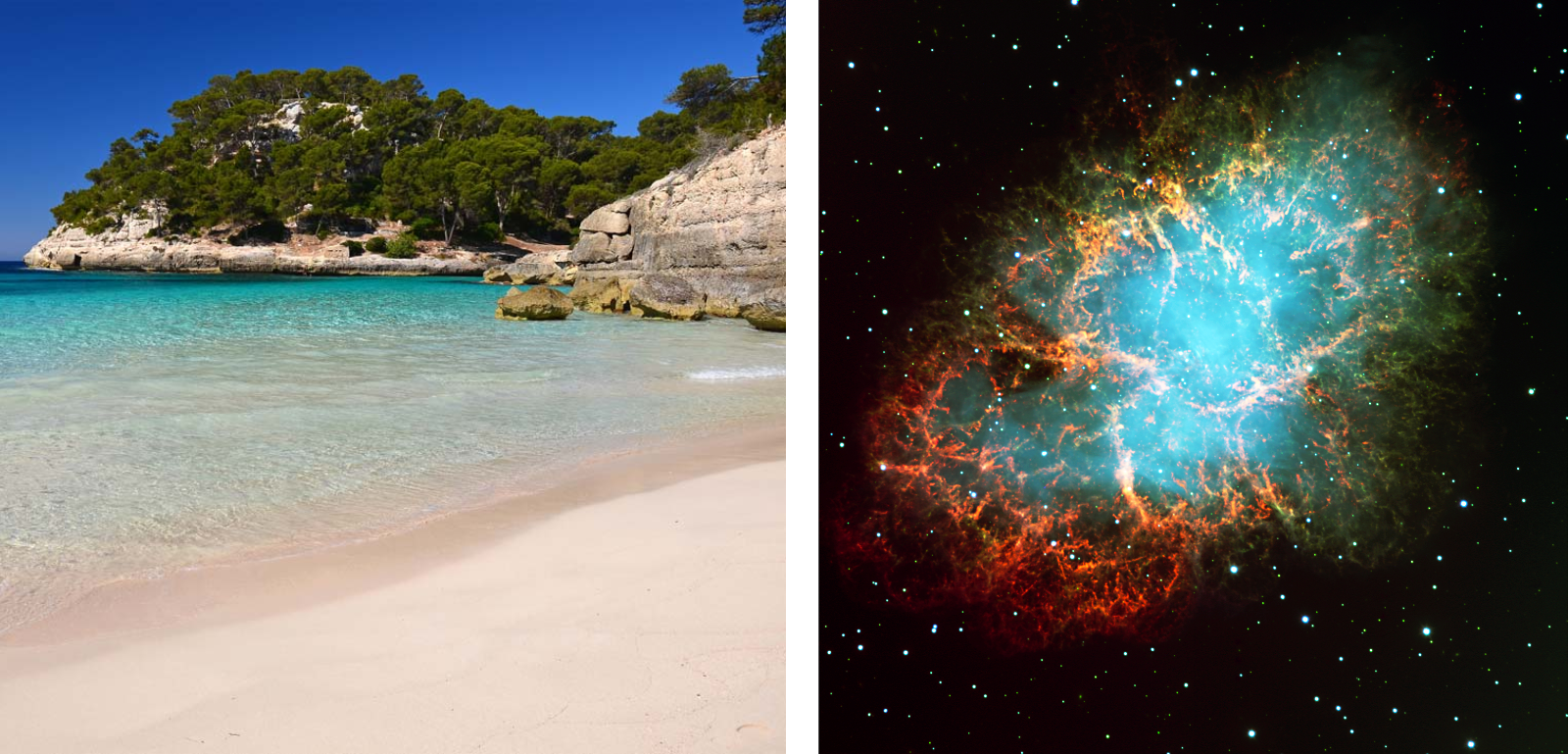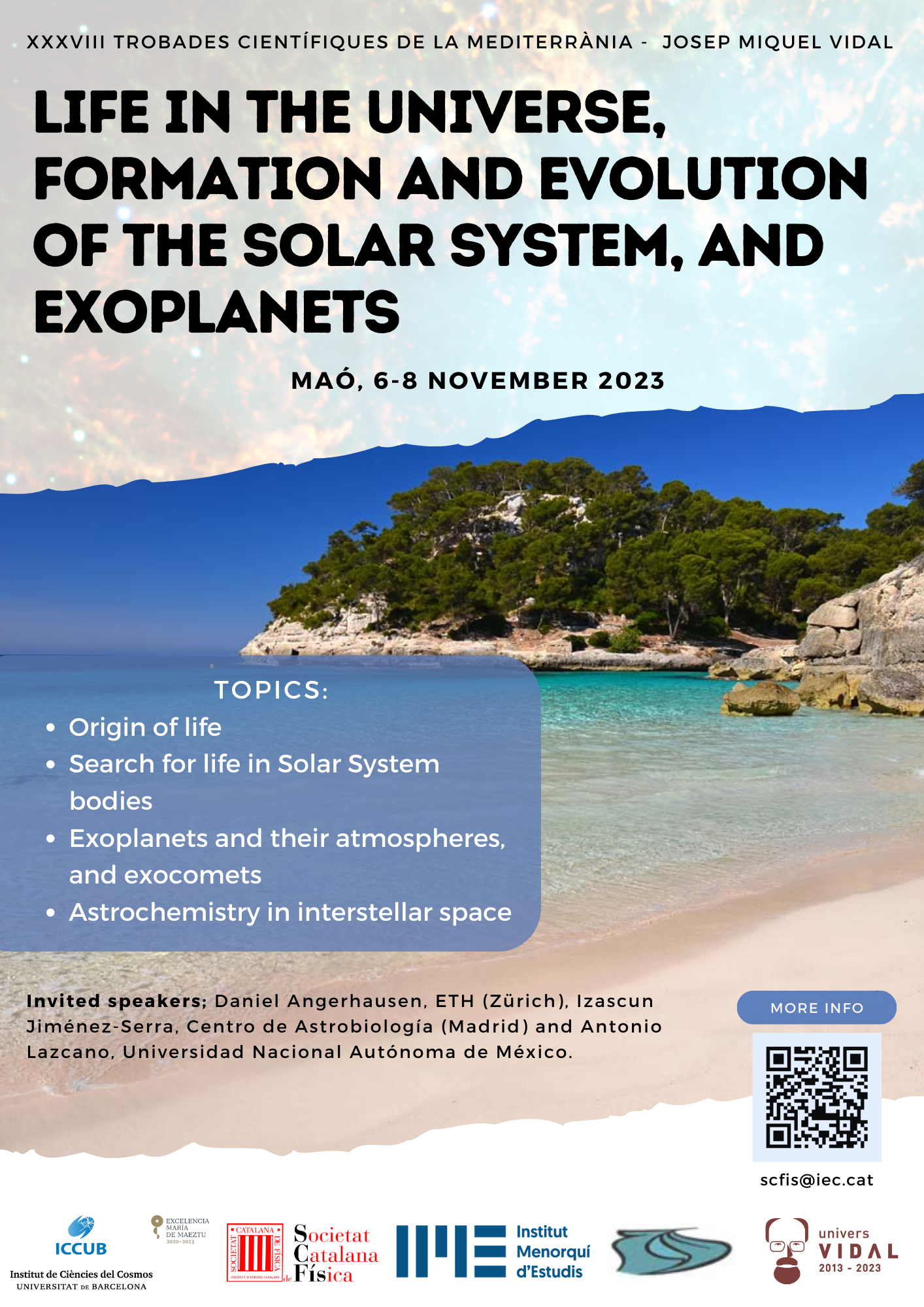
How did life emerge and evolve, from the creation of heavy elements in supernovae like the one that originated the Crab nebula, to the life we find today in a place such as a beach in Minorca?
The XXXVIII Trobades de la Mediterrània: Life in the Universe, formation and evolution of the Solar System, and exoplanets will take place at the Insititut Menorquí d'Estudis in Maó on November 6, 7 and 8, 2023.
After almost 30 years of the discovery of the first exoplanet, we now have discovered more than 5000 exoplanets and have characterized their distribution in mass, radius, orbital period and eccentricity over a broad range of these parameters. The atmospheric composition of exoplanets transiting over their stars is being analyzed with increasing detail, thanks among others to the new spectroscopic observations with JWST.
At the same time, life in the Solar System can be searched in several bodies that contain liquid water in their interior, namely Mars and various satellites of Jupiter and Saturn, as well as small solid asteroids or satellites that may contain fossil evidence on the origin of life in their internal ices. This suggests that the discovery of fundamental clues on the origin and prevalence of life in the Universe may occur in the not too distant future.
The goal of this meeting is to bring together active researchers from a broad range of scientific areas related to the search for life in the Solar System and beyond; the origin of the Solar System and the study of meteorites, comets and exocomets; and the characterization of exoplanets that may host the appearance of living organisms on a variety of environments in the Universe.
.png)


